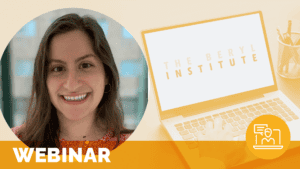G2G: Moving from Good to Great; A Focused Approach to Improve Colleague Engagement and Patient Experience

By Ellen Harry
Imagine a ‘Picture Perfect Room’ with a place for patient belongings, a chair for the provider, therapy equipment, and more; ‘Triad Rounding’ that includes the bedside nurse, provider, and patient; a warm handoff as patients transition throughout the Medical Center; a ‘Close the Loop’ process ensuring all patients are asked if they need anything before leaving a room; ‘Managing Up’ to offer a positive comment about the care team, the hospital, and our services; education on how to give a ‘Blameless Apology;’ and a huddle board driver focused on colleague wellness. These are the initiatives that a multidisciplinary team recently implemented on a pilot unit at Hartford HealthCare St. Vincent’s Medical Center as part of the system-wide Good to Great initiative.
In 2023 Hartford HealthCare’s Human Experience Team embarked on a Good to Great journey to identify units that have the biggest impact on the metric of likelihood to recommend. The journey began with an analysis of patient experience and colleague engagement data from inpatient units across Hartford HealthCare. By analyzing data for likelihood to recommend, paired alongside engagement metrics of team and leader indices, inpatient teams were classified as low-performing, middle-performing, or high-performing units. This tiered approach provided a road map for the type of support needed for each unit.
Focus for high-performing teams is on sustainment and reinforcement of best practices, whereas lower-performing teams need support to address breakdowns which could include team building, operational efficiency, and increased leader visibility. The middle-performing teams with good engagement metrics and readiness for change could benefit from a multidisciplinary team approach with a shared vision and commitment to moving experience from good to great.
Hartford HealthCare St. Vincent’s Medical Center piloted the multidisciplinary team approach with one middle-tier unit. The team, consisting of clinical and non-clinical colleagues, providers, and leaders from across service lines, came together to participate in a mini-kaizen to encourage idea generation, identify barriers, and vote on tactics for testing on the pilot unit.
On day 1, the team was divided into groups and assigned a key driver of likelihood to recommend. The groups were challenged to think about the must-haves we need to get right and the current performance against target and to brainstorm on ways to exceed our customer expectations that aligned with the respective key driver. On day 2, the list of ideas was presented to the entire team, and the just-do-its filtered out. Each participant then voted on the ideas they wished to see implemented on the unit. On day 3, teams were given an opportunity to physically go to the unit and share ideas with colleagues for immediate feedback. Ideas were finalized, and accountable leaders were assigned to each initiative.
Post kaizen, teams continue to meet to hardwire the initiatives and develop standard work. The piloted unit exceeded their FY23 likelihood to recommend target, and in the six months following the kaizen have improved by over ten top box points from their kaizen month baseline. The unit’s “staff working well together” metrics also improved by over eight top box points.
The pilot propelled the Good to Great work now taking place across all Hartford HealthCare regions and reinforced the impact teams can have on experience, engagement, quality, and safety through collaboration and collectively developing countermeasures to overcome barriers. When teams work well together with a shared vision and have input on strategies for improvement, moving from Good to Great can become an attainable goal.
About the Author
Ellen Harry is the Director of Human Centered Care for Hartford HealthCare Fairfield and Northwest regions. She is passionate about the human experience and working with healthcare professionals and teams from across disciplines to promote teamwork and respectful collaboration and to provide the best possible patient care. Ellen began her work in Patient Experience in 2014 and is a Certified Patient Experience Professional (CPXP). She has received certifications in Patient Experience Leadership and Patient Advocacy and is currently pursuing designation as a Fellow in Human Experience (FHX) through The Beryl Institute.
Related content
-
 Patient Family & Community Engagement
Patient Family & Community EngagementEngaging Children and Youth in Healthcare: A Developmental Approach
2pm ET / 1pm CT / 12pm MT / 11am PT – Current efforts to engage children and youth in hospital care lack a formal framework and engagement programs often rely solely on caregivers and guardians as proxies, overlooking their direct input. This presentation emphasizes the importance of involving children and youth directly in healthcare
Learn more -
 Patient Family & Community Engagement
Patient Family & Community EngagementPatient Perspective on Health Care Utilization at Two Free Clinics – A Qualitative Study
Millions of uninsured Americans access health care through free clinics, but their experience with the medical system is understudied. This study sought to understand patterns in free clinic patients’ experience with healthcare utilization through qualitative and descriptive analyses. Data were collected through face-to-face, open-ended interviews at two free clinics in an urban Florida community. The
Learn more -
 Patient Family & Community Engagement
Patient Family & Community EngagementPX Chat on PFA/PFACS: Revitalizing/Rebuilding (April 9, 2025)
12pm ET / 11am CT / 10am MT / 9am PT – Join The Beryl Institute community for an opportunity to connect with your peers on the support and resources needed to address efforts around revitalizing and rebuilding PFAs and PFACs in their organizations. Breakout discussion groups allow you to share your challenges, celebrate your
Learn more
